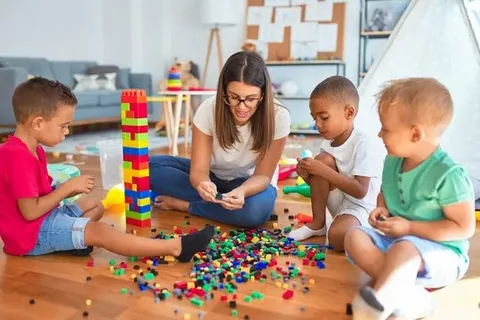Social skills are fundamental for a child’s overall development, influencing their ability to communicate, collaborate, and thrive in various environments. One of the critical environments where these skills begin to flourish is daycare. The role of daycare in building social skills for young children is increasingly recognized by parents, educators, and child development experts alike.
Understanding Social Skills in Early Childhood
Social skills encompass a range of behaviors, including sharing, taking turns, empathy, listening, and expressing oneself appropriately. These skills lay the groundwork for successful interactions both inside and outside the home. For young children, acquiring these abilities is often tied to their daily interactions with peers and caregivers.
How Daycare Facilitates Social Skill Development
The role of daycare in building social skills for young children is multifaceted. Daycare centers provide a structured yet nurturing environment where children are exposed to diverse social settings. Here’s how daycare supports this development:
1. Interaction with Peers
In daycare, children encounter peers of similar age, allowing them to practice cooperation, conflict resolution, and friendship-building. Regular group activities and playtime encourage children to communicate, share resources, and develop patience.
2. Guidance from Caregivers
Qualified daycare staff play a vital role in modeling appropriate social behavior and guiding children through social challenges. They help children navigate emotions and teach them constructive ways to interact with others, reinforcing positive social habits.
3. Exposure to Diverse Situations
Daycare environments often simulate real-world social settings with routines, rules, and group dynamics. This exposure helps children adapt to different social cues and expectations, preparing them for future educational settings and social interactions.
Benefits Beyond Social Skills
While the role of daycare in building social skills for young children is critical, daycare also supports cognitive development, language acquisition, and emotional regulation. The social interactions in daycare stimulate communication skills, boost confidence, and foster a sense of community among young learners.
Conclusion
In summary, the role of daycare in building social skills for young children is vital for their holistic growth. By offering rich social experiences, guided interactions, and supportive environments, daycare helps children develop essential skills that will benefit them throughout their lives. Parents seeking to enhance their child’s social development should consider the significant advantages that quality daycare settings provide.


